City Government
Peachtree Corners Distinctiveness Predates Cityhood
Published
2 years agoon
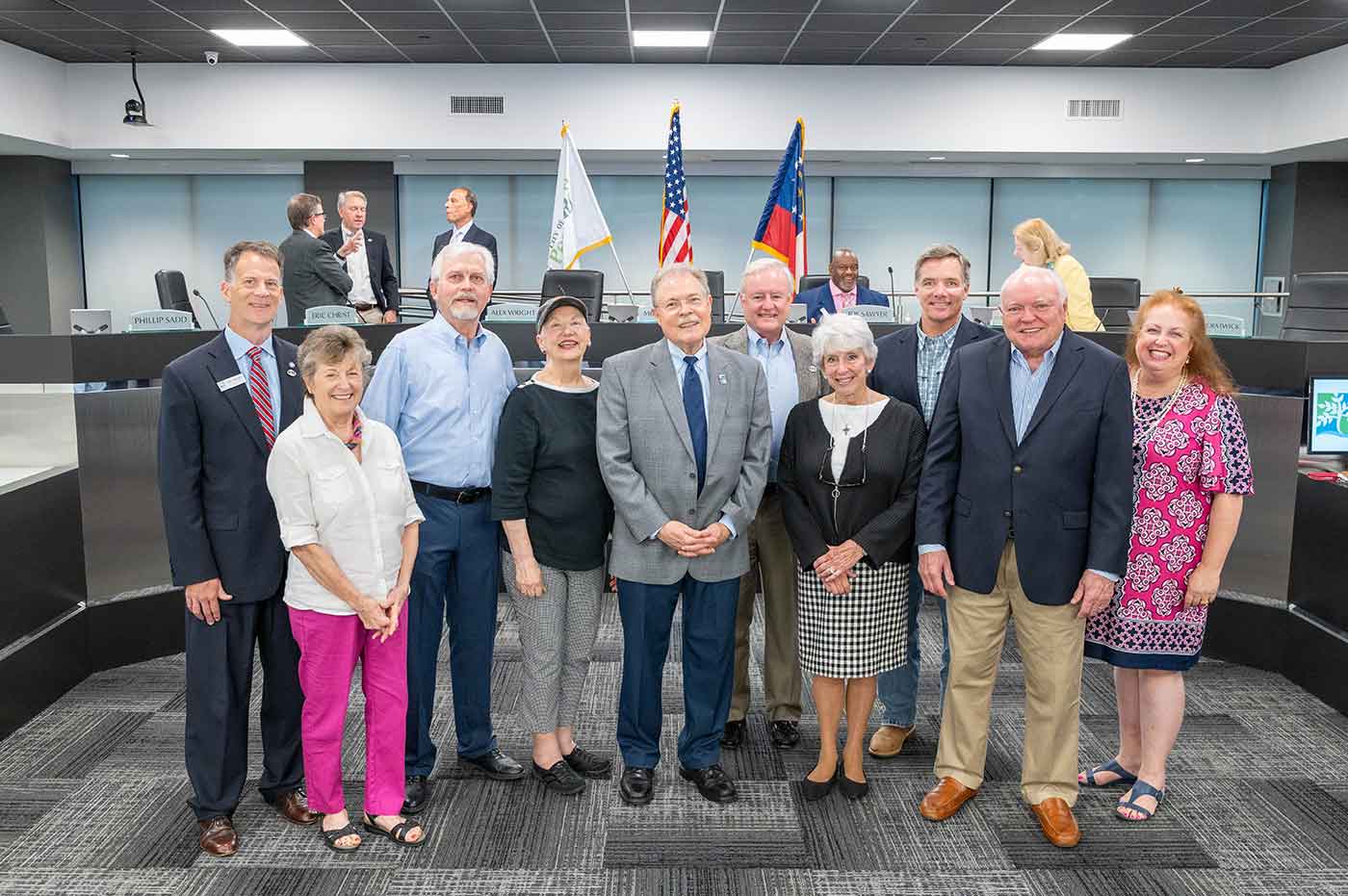
The wild, wooly wilderness of western Gwinnett holds a richness that has drawn many to settle on these banks of the Chattahoochee River to this day.
In its 10 years as a city, Peachtree Corners has built a reputation as an innovative center for technology and a community that strives to maintain family values and a quality way of life. To get a perspective on why this city is a jewel in the crown of Gwinnett County, it’s important to go back to the origins of how this area became settled.
Atlanta native Carole Townsend wrote a book, released last year, about the history of the area. Titled “Peachtree Corners, the History of an Innovative and Remarkable City 1777-2020,” she chronicles the city from the early days of the Creek Indians, who claimed the area as their home, through the creation of the technology hub that exists today.
In a podcast interview with Peachtree Corners Magazine shortly after the book was published, Townsend gave insight into why Peachtree Corners is such an innovative and remarkable place.
The boundary that defines the westernmost part of Gwinnett County, the Chattahoochee River, was perhaps the main reason the area was so coveted by many. For the indigenous peoples, it was a lifeblood, explained Townsend. And as Europeans moved into the area, they naturally built their settlements along it.
“The Europeans brought with them diseases that the Native Americans had no immunities to,” said Townsend. “A lot of them were wiped out.”
Eventually about 16 different native tribes formed a nation of Native Americans that was mainly made up of Creek with a little Cherokee mixed in.
“The Cherokee tribes were mainly north of the Chattahoochee,” said Townsend.
By the time the colonies had formed to become American, there were few Indigenous people left. That’s when many of the founding families moved to this area.
“When we look at Holcomb Bridge Road and we look at Nesbitt Ferry… these are not names just pulled out of a hat. We even have recent history that they go back a long way,” she continued.
In 1777, western Gwinnett County, in what is now Peachtree Corners, had its first White landowners. “I can tell you the absolute earliest family was the Medlocks. And I can say that with certainty because Isham Medlock was the first recorded Medlock in the area,” Townsend added.
Another prominent family that Townsend chose to highlight, the Nesbitts, wasn’t of European descent.
“Of course, there are many important families that settled the area, but the Nesbitt family — the Perry Nesbitt family — struck me as another group that really needed to be part of the story,” said Townsend. “The patriarch and the matriarch of that family were born into slavery. They were born before the Civil War ended, and in fact, the grand patriarch — they actually called the gentleman Perry P. Nesbitt — was also born into slavery and was emancipated at age nine; he became a prominent landowner in Pinckneyville and that was highly unusual.”
In that period of the nation’s history, it was very unusual for someone of color – especially someone who had been born into slavery — to become a well-known and prominent landowner. “That was done strictly through work ethic and a love of education and that it was a story that had to be told,” added Townsend.
Fast forward to the mid-1900s, and Gwinnett County hadn’t changed much from its early days. To the people in Fulton and DeKalb counties, Gwinnett was pretty much the wild and wooly wilderness. There wasn’t much development, but there was a lot of trade with the railroad coming through Norcross.
Attracting best, brightest minds
You really can’t document Peachtree Corners history without mentioning Paul Duke. After graduating from the Georgia Institute of Technology, he worked for
L.B. Foster, a railroad equipment manufacturer.
In the late 1960s, he pitched an idea for a planned community in the area known as Pinckneyville, now Peachtree Corners. He had the vision for a place where people could live and work in the same area to eliminate long commutes. In essence, he designed one of the first live-work developments.
Duke was concerned that Georgia Tech grads basically had their bags packed before graduation and headed to places outside the state. This “brain drain” was taking away the best Georgia-grown intelligence to help other areas prosper.
“Part of his job with [Foster] was to acquire properties on which to build their facilities. And as a result of those responsibilities, he ended up in western Gwinnett County and he immediately dubbed it ‘God’s country.’ He thought it was the most beautiful place he had ever seen,” Townsend said. “That’s when he got the idea to build this cutting-edge technology campus or business campus with a focus on technology to attract those engineers.”
Duke developed the business area called Technology Park which brought high-tech industries into the area. In the mid-1970s, another developer, Jim Cowart, built upon Duke’s idea with the neighborhoods of Peachtree Station, River Station and others. In the 30-plus years since the vision of Peachtree Corners, the population has skyrocketed with an estimated current total of nearly 50,000.
Protecting the quality of life
Although Technology Park has a lot to do with Peachtree Corners success and growth, the uniqueness of the city is so much more than that.
With the seven-mile northwestern boundary of the Chattahoochee River, Peachtree Corners residents have an abundance of natural beauty within their sight. The 277-acre Simpsonwood Park is a heavily wooded area along the Chattahoochee. In 2016, Gwinnett County developed a $7 million plan to upgrade the area. It added a learning playground, nature overlooks, trail improvements and camping amenities.
Jones Bridge and Holcomb Bridge parks are also located along the banks of the Chattahoochee. They are parcels of natural beauty that offer playgrounds, river overlooks, fishing pavilions and open meadow space.
With so much emphasis on growth and development, the city founders believed it was important to keep in mind quality of life issues. Some of the same breathtaking scenery that first drew the Creek and Cherokee tribes, as well as the first European settlements, has survived to this day.
Maintaining that balance of progress and preservation has been a goal for the United Peachtree Corners Civic Association (UPCCA). The nonprofit, non-partisan organization serves the residents of Peachtree Corners in their desire to maintain high quality of life standards. The association monitors and communicates land use and rezonings, transportation, education, public safety and other issues of significance to the community.
It recently held a townhall meeting allowing all interested parties to learn about planned changes to The Forum at Peachtree Parkway and surrounding areas. It also held its annual COPS forum where residents learned about public safety issues in their neighborhoods, schools and all throughout the city.
“We actually predate the city,” explained UPCCA President Matt Lombardi. “It was from this organization that the question of cityhood first arose — and it wasn’t an impulsive decision. We all weighed the pros and cons of adding another layer of bureaucracy to the area.”
Peachtree Corners was a city-like area, but not quite what the Census Bureau calls a designated place —a statistical geographic entity representing a closely settled, unincorporated community that is locally recognized and identified by name.
Lombardi admitted that he wasn’t completely sold on the idea of cityhood at first. “I thought we had a good thing at the time and wasn’t sure we needed to change it,” he said. “I’d been pulled over three times in Dunwoody, which had just become a city, and was concerned that we’d become a speed trap needing the revenue to pay for police and other services.”
Lombardi said one of the selling points for forming a city was that there wouldn’t be a city police force. To this day, Peachtree Corners uses Gwinnett County law enforcement.
A city is born
As early as 1999, the notion of forming a city had been bandied about. On July 1, 2012, Peachtree Corners officially became a city, the county’s 16th — and largest — city, and the first to incorporate since 1956.
“The people have spoken,” said Mike Mason, who had led the campaign as the president of the UPCCA, in a statement to the Gwinnett Daily News. “Now, we have a voice. We can have a plan for the future.”
Gwinnett County Commissioner Lynette Howard, who represented the area at the time, said cityhood allows local residents to have more control of their own destiny. “I just love the branding and the identity, and it’s just going to strengthen,” she told Gwinnett Daily Post. “It’s so exciting. It’s not (just) a volunteer community anymore.”
Now mayor of Peachtree Corners, Mike Mason said the city is what he and other envisioned — and more. “The original purpose of the city was self-determination. We all felt that the citizens of Peachtree Corners should make decisions about our future, not the county, or anyone else. So, from a self-determination point of view, it’s been exactly what we hoped,” he said.
“What’s been better than we hoped has been the extent that self-determination has fueled innovation, creativity and flexibility. Curiosity Lab is a world class entity. No one was talking about incubators or sophisticated high tech, global economic development programs in 2011. No one knew we’d have to pivot and save the trees in Simpsonwood Park from development in our first year of existence. No one was thinking about a Town Center or multiuse trails either.
“I’ve been told many times by former county officials and citizens alike that without the city, Peachtree Corners would have a very, very different look. A look our citizens would not approve,” Mason concluded.
Lisa Proctor, president of Peachtree Corners Business Association (PCBA), a civic organization that is also celebrating a 10-year anniversary, agreed. “Celebrating milestones such as the 10-year anniversary of the City of Peachtree Corners provides the unique opportunity to take a step back and reflect on what is working and what can continue to be improved and enhanced,” she said.
“Like any new city, we are experiencing change and growing pains. Being informed and staying up to date on what is happening is a challenge when growth is happening so quickly,” Proctor added. “As a long-term resident and business owner in the city, I have the opportunity to evaluate these questions from both perspectives.
“I continue to feel strongly that in order to have effective planned growth, we need our planning and zoning to maintain the quality of our community by limiting exceptions, changes in zoning and overgrowth with too many apartments, too much traffic and overcrowding our natural resources, schools, sewers and amenities,” she said.
But Proctor stressed that she believes that Peachtree Corners is living up to its mission. “I would love to see Peachtree Corners continue to grow and evolve while maintaining a sense of community and service that reflects our values and community spirit. I think with a balance of continued input from both the residential and business community, these objectives can be met. I do believe it is important to have a community that respects its citizens throughout their life — from child to senior citizen — and a city that does not only focus on limited demographics.”
Ready to take on the future
Through her research, Townsend gained a new respect for Peachtree Corners. “My takeaway from this book is the fact that Peachtree Corners is undisputedly the crown jewel of Gwinnett County,” she said. “The American dream today is not what it was in the late 60s and 70s. Millennials — the workforce now — they don’t want the big house and the two cars in the driveway and the 2.2 kids … They want smaller, more efficient housing. They want walkability. I’m not sure a visionary as Paul Duke could have understood where technology was going by this time. So, Technology Park has been reimagined and it’s an example for the world not just for the nation.”
Mayor Mason admitted he doesn’t have a crystal ball, but he has high hopes for the city’s future. “Who knows where Curiosity Lab will go, how Intuitive Surgical will change the city or the impact of the redevelopment of The Forum? After 10 years, I am still trying to find that magic bullet to initiate redevelopment on the southside,” he said.
“What I’d like to see is a rapid bus corridor leaving Doraville Station, going down Buford Highway, then on to Jimmy Carter and Holcomb Bridge Road, turning around at the little Publix with several transit hubs along the way. I’ve been told our citizens living along that corridor would benefit from transit and this would be a real spur to redevelopment.”
Mason added, “My other dream is to have a college in Peachtree Corners. We have two high schools in our community and lots of other residents — of all ages — would benefit from educational opportunities in the city. I’m not just talking about general education, but technical programs that complement Curiosity Lab, Intuitive Surgical and our other technology-based businesses.
“The possibilities for Peachtree Corners are limitless given the innovation and creativity of our citizens.”
Related
Arlinda Smith Broady is part of the Boomerang Generation of Blacks that moved back to the South after their ancestors moved North. With approximately three decades of journalism experience (she doesn't look it), she's worked in tiny, minority-based newsrooms to major metropolitans. At every endeavor she brings professionalism, passion, pluck, and the desire to spread the news to the people.

City Government
Southwest Gwinnett Mayors Share Visions for the Future
Published
4 days agoon
July 22, 2024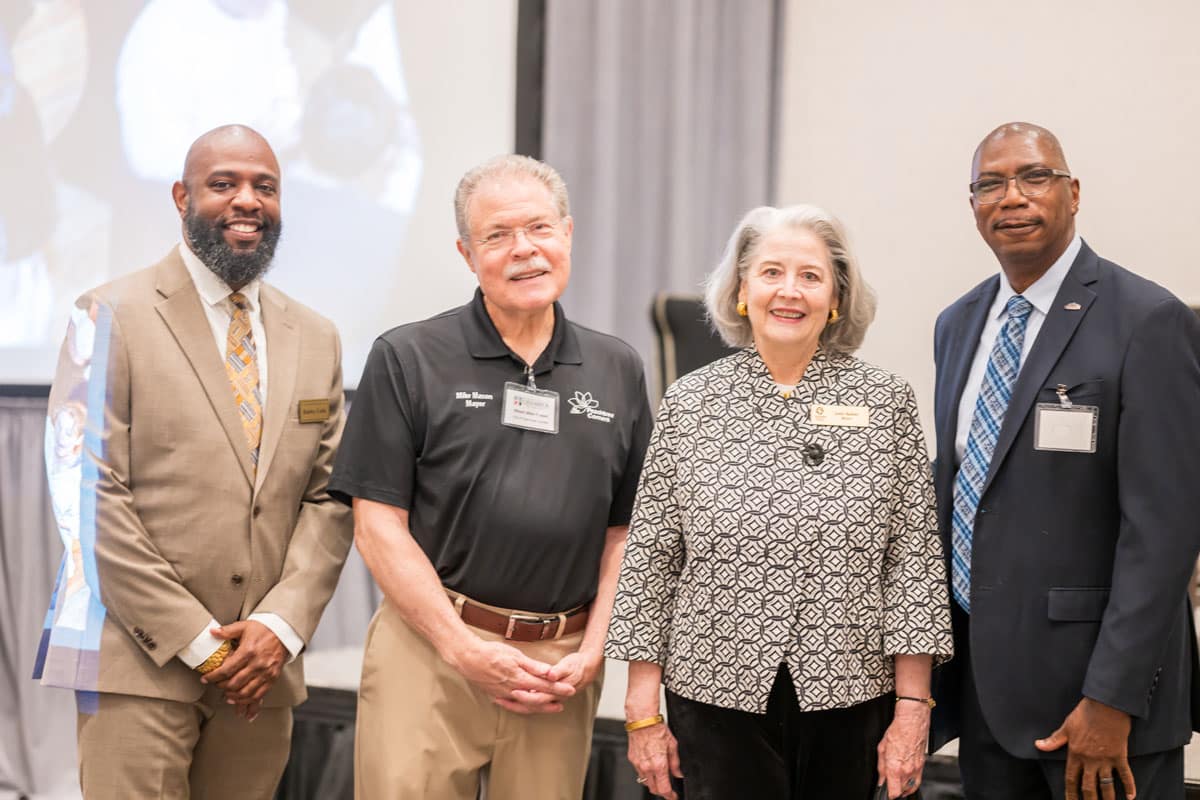
In what has now become tradition, the Southwest Gwinnett Chamber of Commerce hosted mayors from Berkeley Lake, Norcross and Peachtree Corners at a panel discussion on July 12 at the Hilton Atlanta Northeast.
The conversation centered around strategies for revitalizing and expanding metro Atlanta cities, with a focus on redevelopment, zoning ordinance reform, pedestrian and bicycle safety and investing in local schools and affordable housing initiatives.
Zoning changes
“We are beginning a really big project in our city. We have had ordinances that we’ve been working on ever since the city was incorporated in the 1950s,” said Berkeley Lake Mayor Lois Salter.
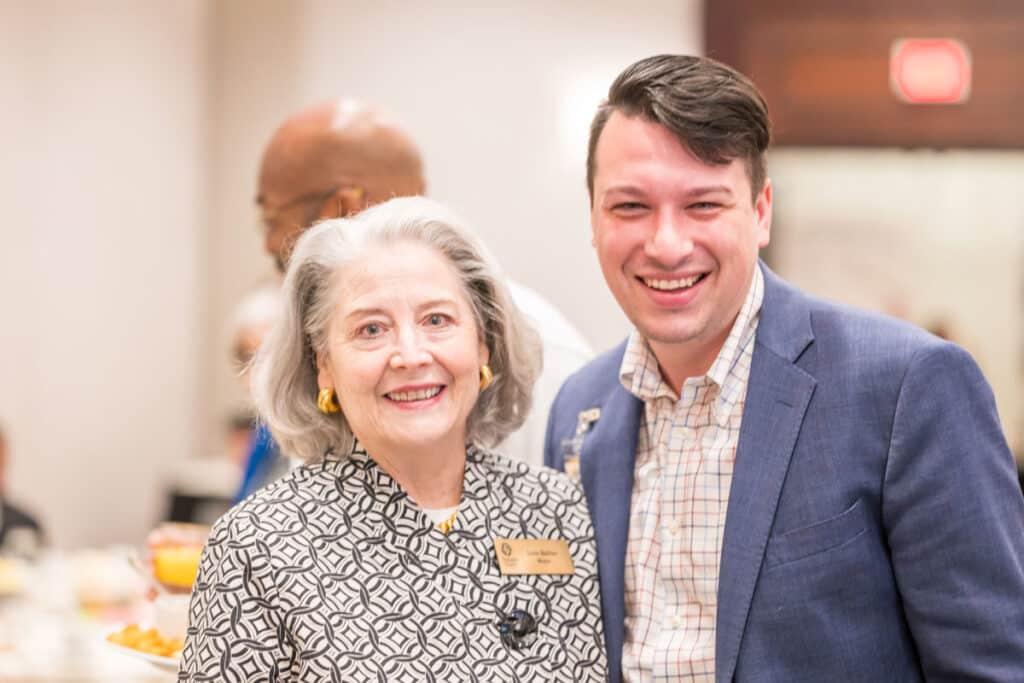
“We feel that we need to overhaul the whole zoning ordinance system and hire a consultant to come and elicit understanding and opinions from our citizens. We want them to be a part of that. We have some folks that resist any kind of regulation. They just want us to regulate their neighbors,” she added.
Norcross Mayor Craig Newton agreed that evolving needs are an important reason to change the zoning, and planning for what lies ahead is paramount. He pointed out that all Georgia cities must implement a comprehensive plan to maintain their qualified local government certifications and remain eligible for selected state funding.
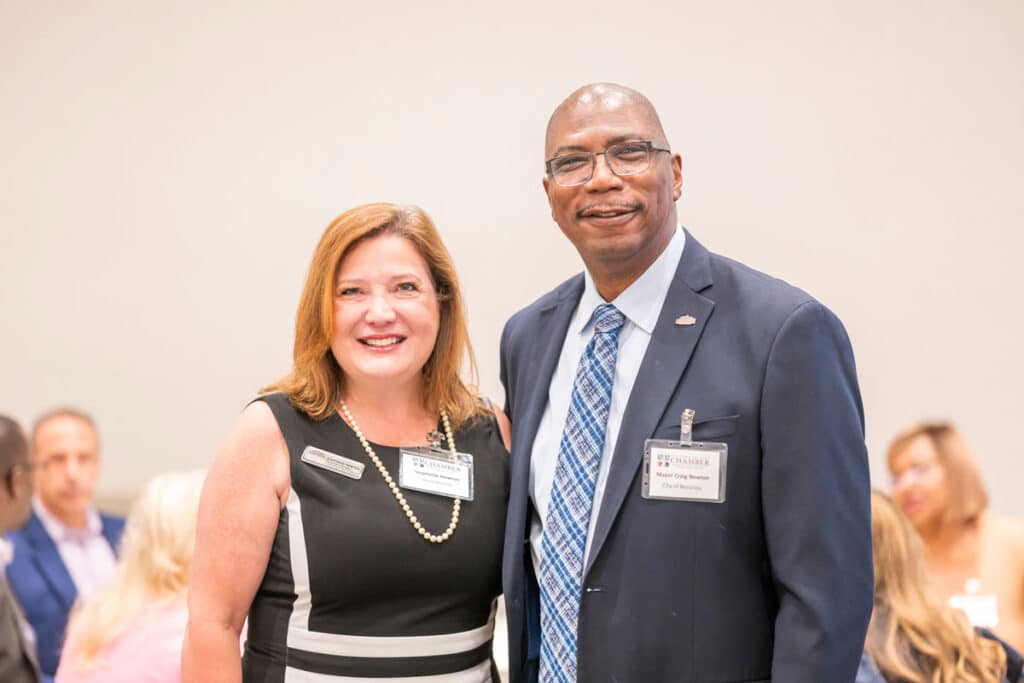
Land development
“We intend to focus on improving pedestrian bicycle safety downtown and establish a sidewalk activity improvement,” he said. “We’re also looking at approving parking in our town center and constructing the Norcross Greenway, which will bring a much-welcomed park, green space and a trail,” he added.
The county announced earlier this year that the project involves redeveloping the existing property into a park that will span almost two acres. It will offer various community spaces, including a multi-use trail, playground, covered picnic area, restroom building and a 41-space parking lot.
In addition to its amenities, a 12-foot-wide concrete trail segment will wind through the park and utility corridor, connecting Singleton Road to Dickens Road.
The trail is part of the 2018 Gwinnett Trails Countywide Trails Master Plan‘s Norcross to Lilburn Trail with an internal loop trail connecting to the neighborhood.
Commercial use
Peachtree Corners has had several “community-friendly” projects come online in the past year, but the effects of the pandemic continue to linger.
“When you think about the future, you’re thinking about the landmass and buildings and commerce. Probably the most significant issue facing a lot of us in the near term is modern office space,” said Peachtree Corners Mayor Mike Mason. “There’s a lot of space. The question is, are people going to come back?”
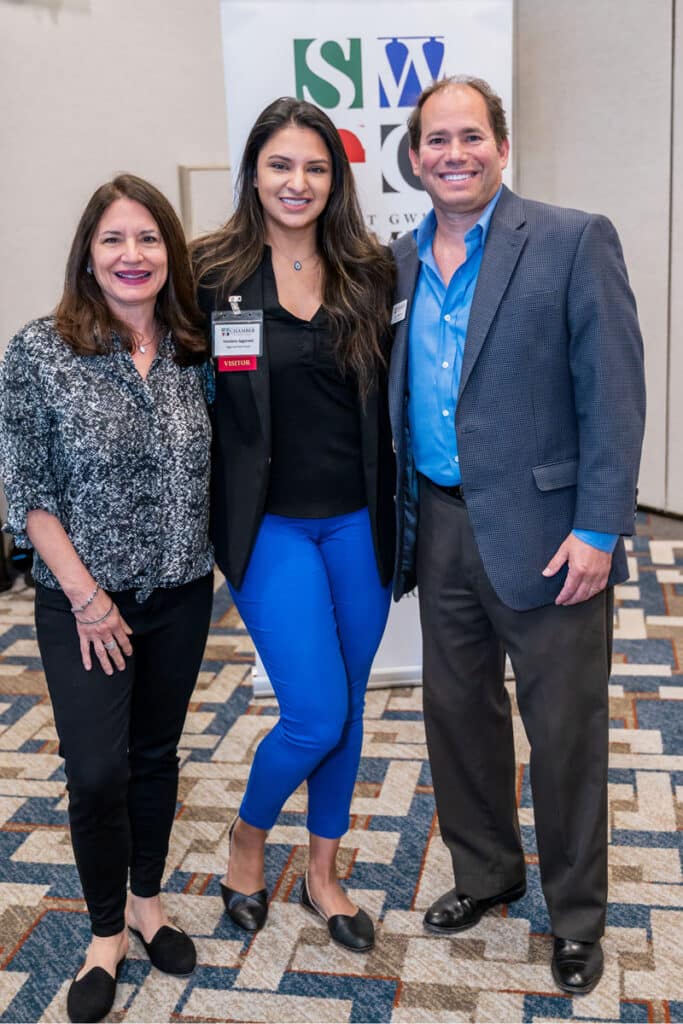
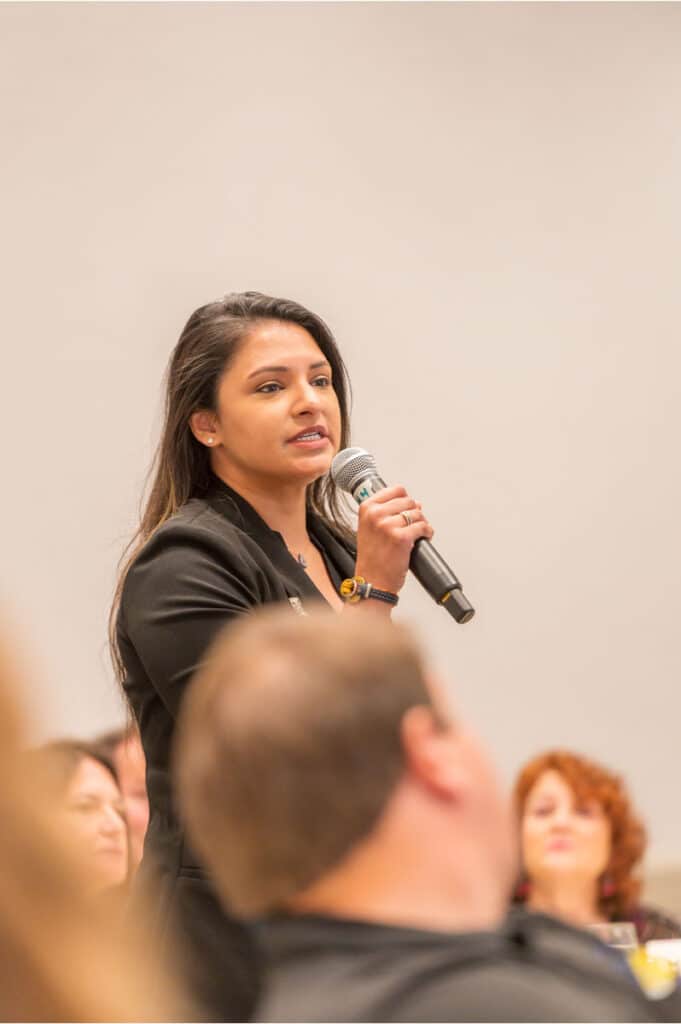
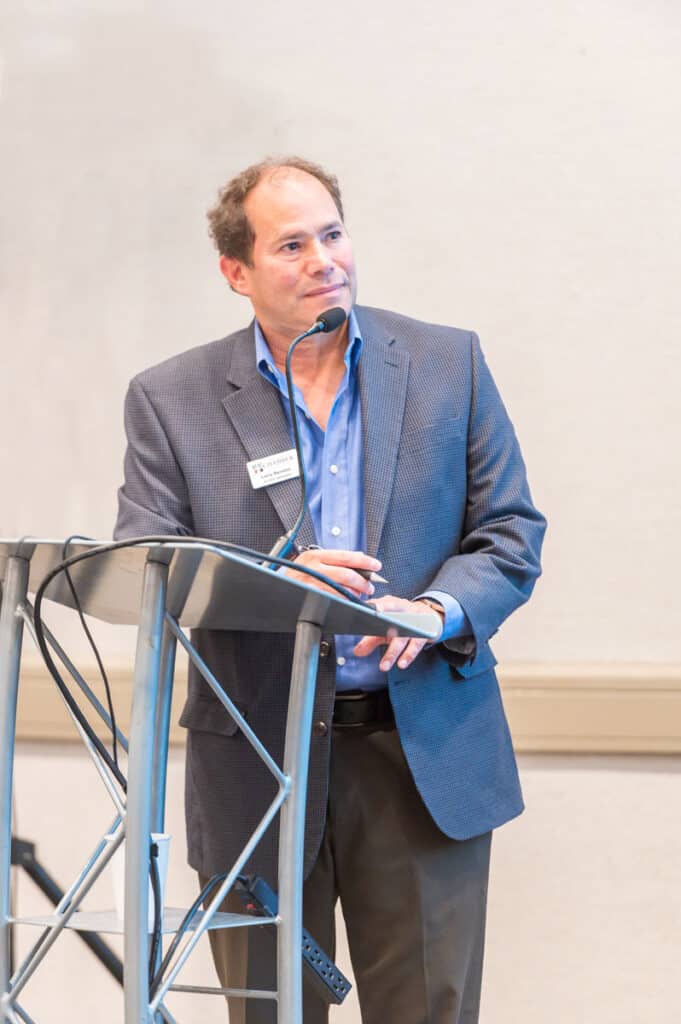
He said that the central retail area has shifted with the revitalization of The Forum and that’s making city leaders rethink city planning.
“We’re having a look at our code and things like that. But from another point of view that will drive the decision about what communities are going to look like,” he said. “For example, there are people coming into the city that say some buildings are technologically obsolete.”
Public safety
Even though Berkeley Lake is the smallest of the three cities and has the highest average home values, all the mayors agreed that public safety is a growing concern.
“Living in Norcross offers residents a dense suburban feel that’s somewhat rural compared to the city of Atlanta,” said Newton. “But some of our public safety initiatives are increasing police presence in high crime areas.”
As the only one of the three cities with a full police department, Norcross is seeking creative ways to implement effective community policing strategies to build trust and communication between law enforcement and the residents.
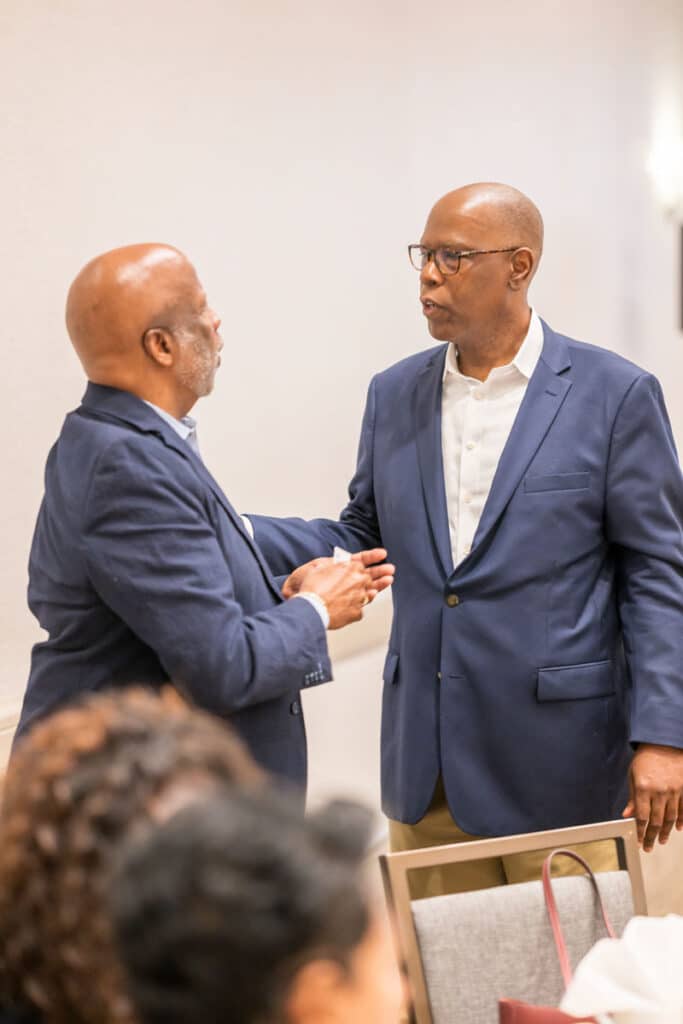
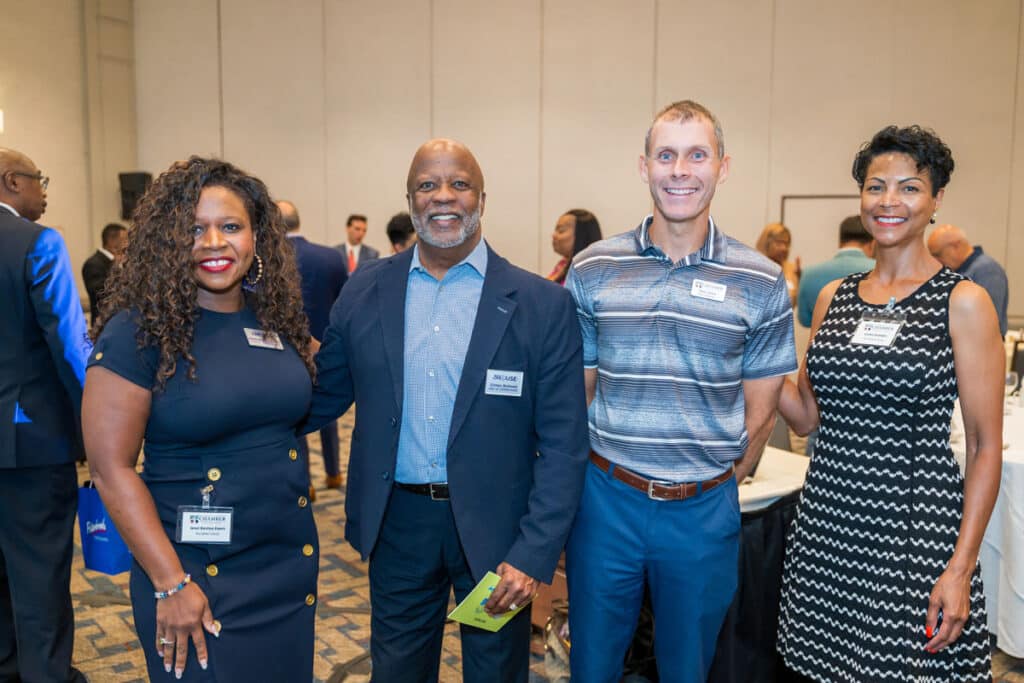
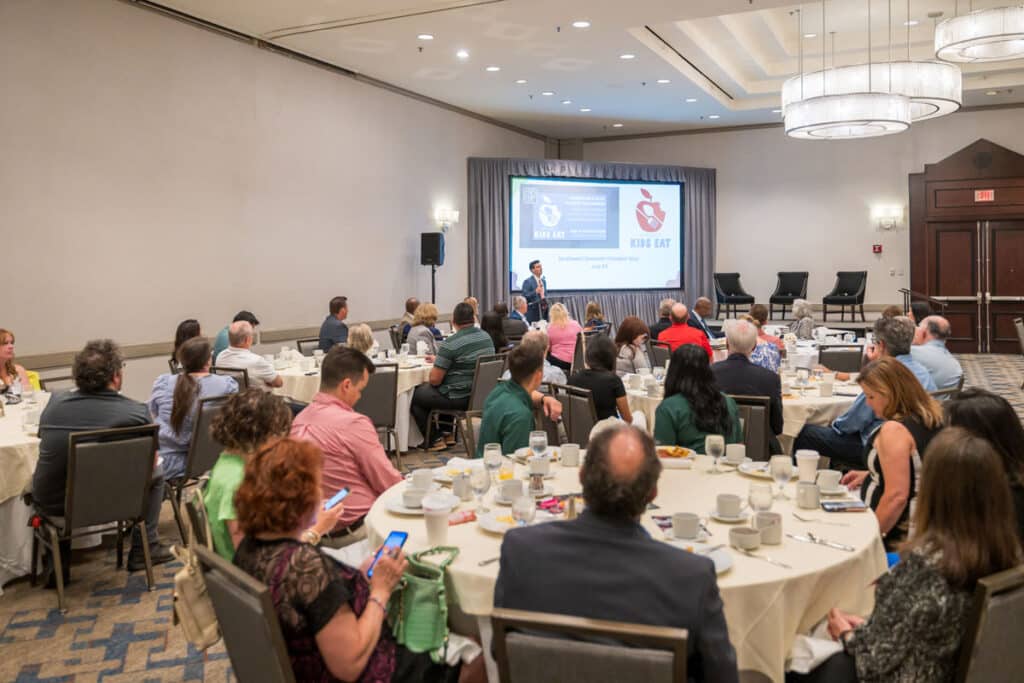
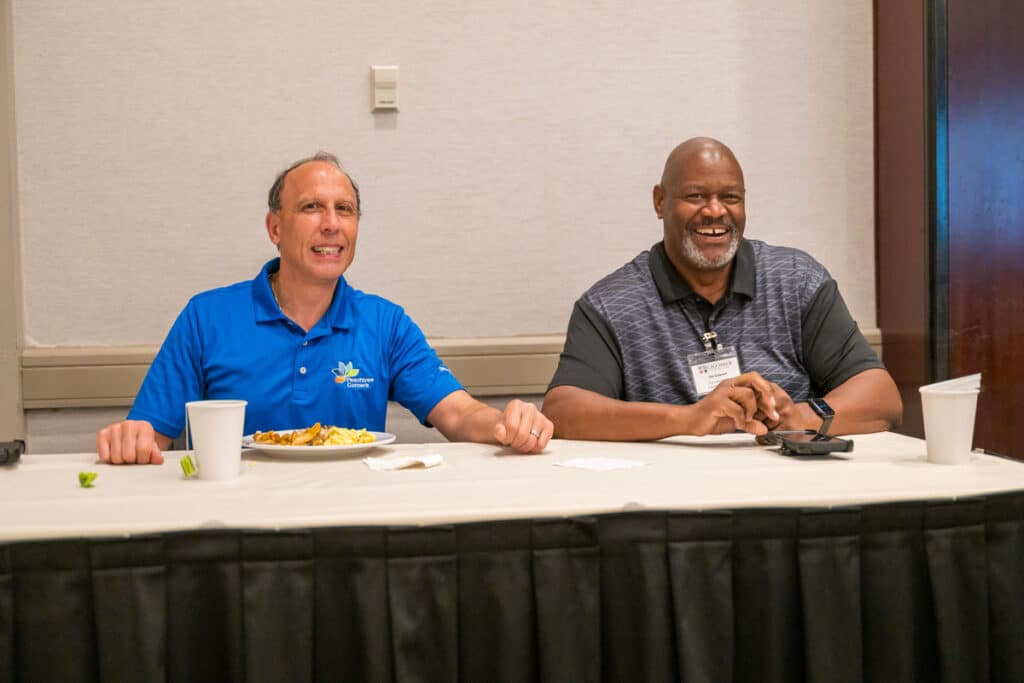
Newton mentioned programs such as Neighborhood Watch, youth outreach programs and educational initiatives along with enhancing emergency response capabilities with training for the local fire department and EMS services.
“Our response time goal is for an officer to be on-site in an emergency within 30 minutes,” he said. “But that doesn’t happen.”
Extended-stay hotels tend to attract crime, so Newton said the city has worked with owners to improve lighting in the public spaces to deter criminal activity.
“We’ve partnered with nonprofit businesses and local stakeholders to support social services employment opportunities for at-risk individuals,” he said. “By working together with various organizations and entities were able to address the complex challenge of public safety.”
Community accountability
With no police force, Berkeley Lake relies heavily on cameras and old-fashioned “knowing your neighbors,” said Salter.
“Some of our individual HOAs are buying and furnishing and paying for cameras to safeguard their neighborhoods,” she said.
Although there may be pockets of criminal behavior around the city, Salter said a police officer once described Berkeley Lake as a “black hole” of crime because there’s so little crime data.
“One of the reasons for that we feel is that historically we’ve been a very neighborly people,” she said. “There is an amazing system of community cohesiveness.”
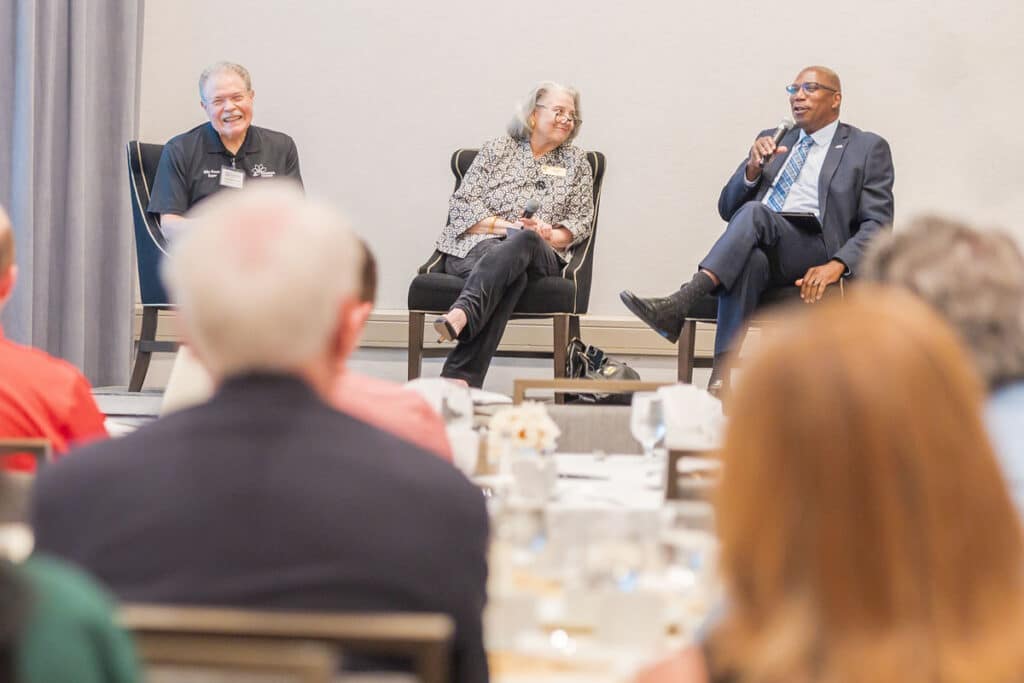
Peachtree Corners is taking its own approach.
“We’ve recently added a Marshal Service and as Lois mentioned we’re also leaning on technology,” said Mason.
The marshal department doesn’t take the place of the services provided by Gwinnett County Police, it primarily enforces city code and aids Gwinnett PD when necessary.
“We’re utilizing as much technology as we can,” said Mason.
Gwinnett PD is instructing where to locate cameras and the city keeps adding them. There have been several instances in the last year or so where coordination among agencies and the use of technology have thwarted or caught criminals.
At the end of the day, the three mayors said the cities all rely on each other. Being so close means that economic development, enhanced entertainment and other desirable amenities are boons for them all.
Related
City Government
Planning and Development is Changing in Peachtree Corners
Published
2 months agoon
June 6, 2024
From Peachtree Corners Mayor Mike Mason’s monthly column.
After the COVID-19 pandemic, the city noticed a development trend that focused on the importance of social interaction. It began seeing development applications for indoor pickleball, virtual racing, garden clubs, car clubs and other recreational uses.
When our city was established in 2012, it adopted Gwinnett County’s codes and ordinances to maintain consistency and these new social interaction-focused uses were not initially considered in the city’s current Comp Plan or zoning code.
Working from home is another market trend having a big impact on local office parks. This economic engine is driven by office parks such as Technology Park and there’s always been a priority placed on preserving office stock.
Even though the commercial office market is waning right now, that pendulum is still trying to figure out where it will settle in. Most of these new socially focused uses find the best home in an office setting.
Due to the increasing number of these applications and the evolving market trends, the city has imposed a six-month moratorium on projects in the Central Business District character area. The moratorium came into effect on May 3 and will end on November 3.
This halt will allow the city six months to pause rezoning applications, special use permits and variances applications for residential or mixed-use development. It will help the city maintain the status quo, stop new applications from coming in and allow for officials to consult with experts and delve deeper into the code and comprehensive plans.
The city plans to conduct extensive research, analysis and strategic planning during this period to help determine if any changes should be made to the comprehensive plan and zoning regulations.
For instance, it might be beneficial to designate downtown as a distinct character area separate from the central business district. Implementing new zoning regulations to transform it into an entertainment district or a unique downtown character area could be a viable option. Many cities have already adopted this type of zoning.
Office parks and businesses throughout the city provide a balance of jobs and residents that allow the city to be the second largest in the state with a zero-millage rate or no city property tax.
Therefore, as part of this process the city will research ways it can preserve, stabilize and enhance the economic engine through the activation of underutilized spaces within office parks.
This proactive approach will help maintain the job-to-resident balance that allows the zero-millage rate while positioning the city for success as the office market pendulum settles.
The most important thing this moratorium does is allow the city to consider what will work best for Peachtree Corners. Furthermore, it communicates to developers that the city requires a pause because current zoning regulations and comprehensive plan do not adequately address future goals.
Related
City Government
Peachtree Corners Welcomes New Community Development Director
Published
2 months agoon
June 2, 2024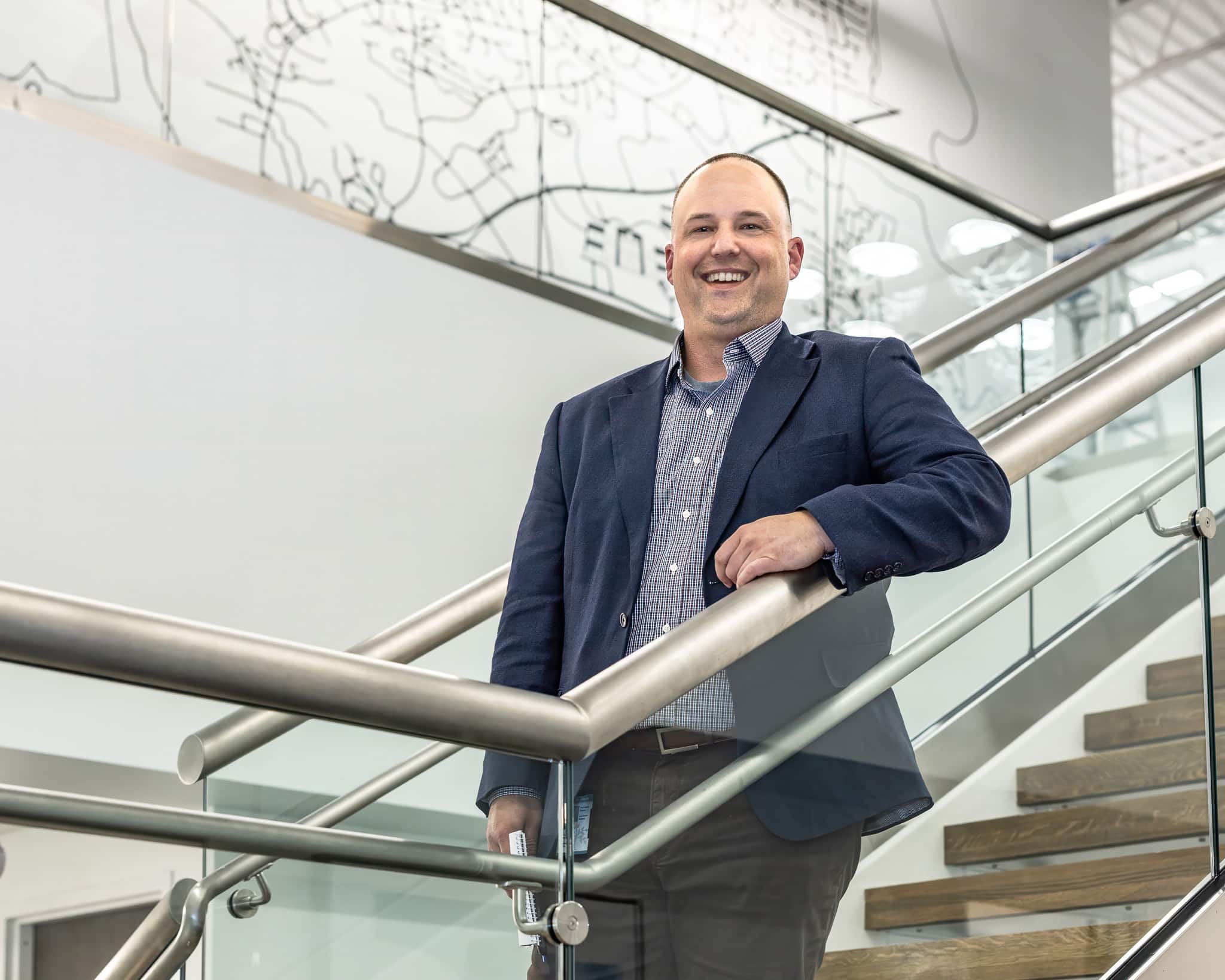
With community development director Diana Wheeler stepping down to pursue a consulting career, Peachtree Corners city leadership turned a challenge into an opportunity.
In January, Shaun Adams was hired as the assistant city attorney to oversee compliance for land use and economic development-related matters and help with legal issues.
His background in public and private sector development made him the ideal replacement.
As luck would have it, Adams moved to Georgia in 2005, selling real estate while attending law school.
“I actually started working down at the capital a lot, lobbying on various policies right out of law school,” he said. “I was the legal counsel for the Senate Judiciary, and that exposed me to ACCG, which is the State County Association, which represents all staff and elected officials for counties across the state.”
With the motto, Advancing Georgia’s Counties, ACCG helps with the policy aspect of things like training and education.
“While I was a lobbyist for them, I focused on economic development, infrastructure-related issues and whatever policies went into place,” Adams said. “We also went around the state and trained our commissioners and their staff on some of those policies and put their new processes in place.”
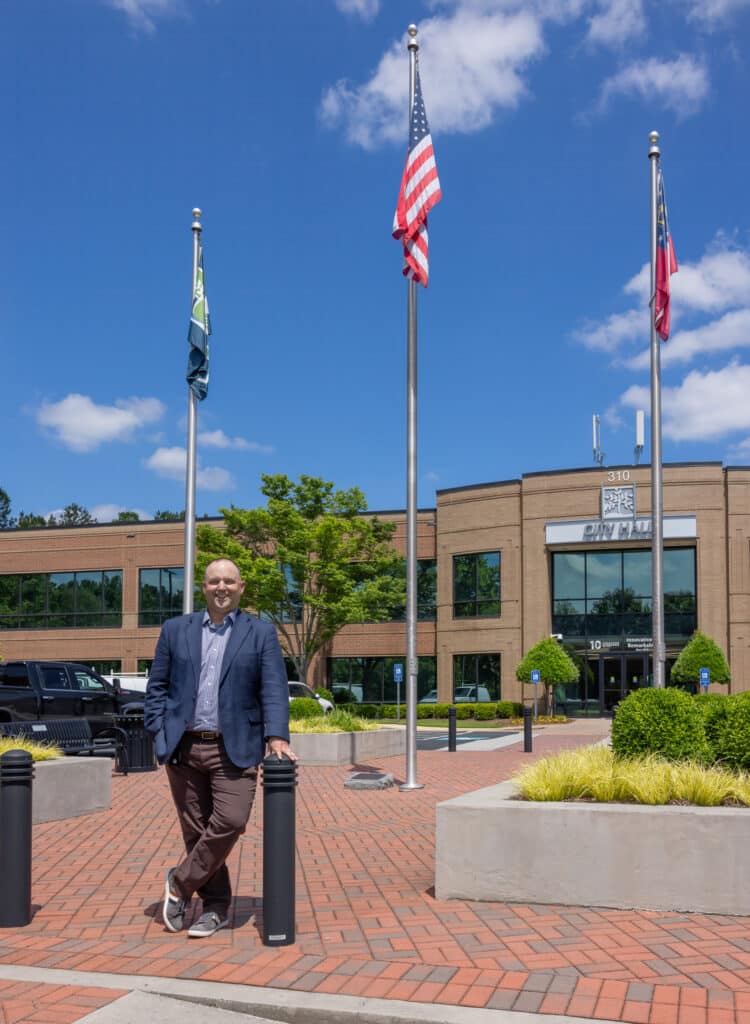
Local government possibilities
“After a handful of years, I got lured away into the private sector,” he said.
Working on land use and government relations matters from the other side of the table, Adams represented developers and investors.
“Sometimes [investors would] come to me with a property that they bought, and they’d say, ‘Hey, we bought this on investment. We’d like to see how we can make the highest and best use of it. Help us create a vision,’” he said. “So, I helped put a team together to determine what we thought could go on the site based off of local government zoning.”
His job entailed working with architects and engineers to design the site and help the client take it to market. Ultimately, the contract purchaser would come in and seek needed entitlements.
“I would help with that,” Adams said. “Those were the fun ones because you got to start on the ground.”
Adams got to know many different local government jurisdictions and worked extensively around metro Atlanta on various matters. On a busy week, he may work with five different jurisdictions across the state.
As a family man with a wife and two sons, he began looking for something that would keep him closer to home.
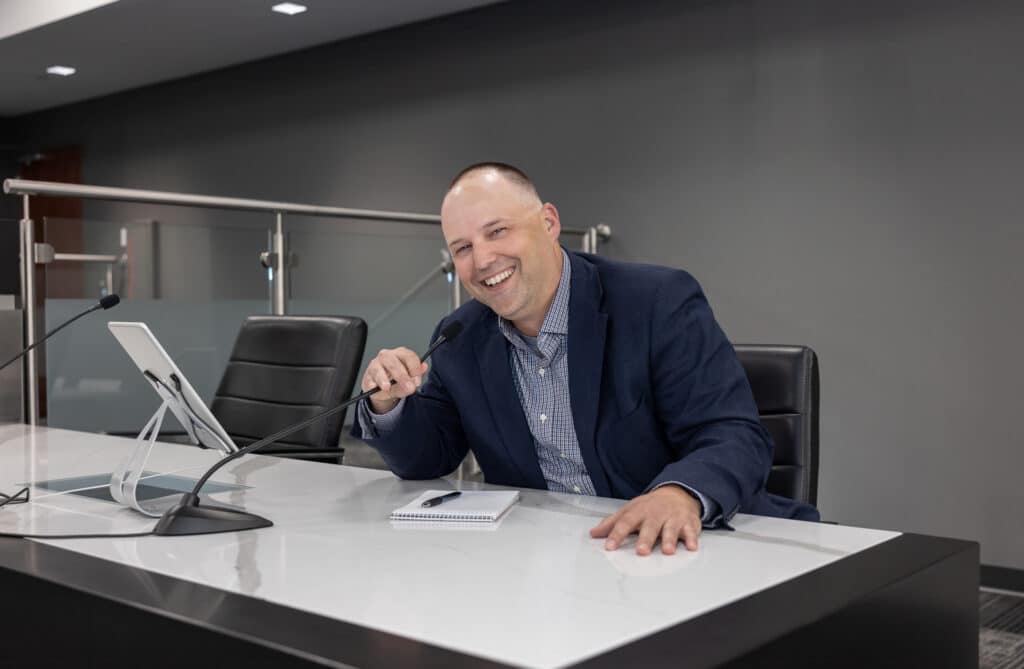
A perfect fit
City Manager Brian Johnson says it was serendipitous that Adams was looking for a position at a time when the city needed someone like him.
“It’s actually a hard position to fill, and I just happened to catch him,” said Johnson. “We were familiar with each other because he’s represented a number of clients coming before the city.”
Johnson said that Adams was legal counsel for some of the most significant developments in the last few years: North American Properties purchasing and revitalizing The Forum, housing development Waterside, and Intuitive Surgical moving its headquarters from the West Coast.
“He was on the other side of the table as we worked together to make these projects ultimately better for the city and better than they were upon their initial submittal,” Johnson said.
“And I knew then that he was a really knowledgeable guy that really knows how to deal with people. He’s a problem solver. He’s always looking for ways to figure out how to resolve conflict and navigate minefields as it relates to land use and all the laws and zoning that apply to it,” he added.
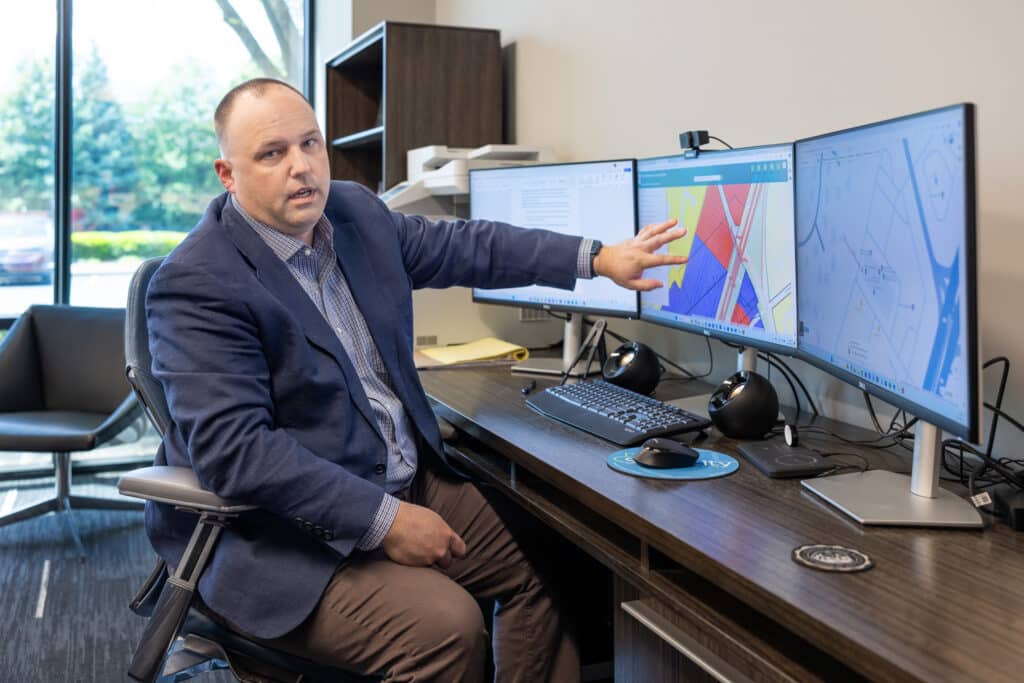
Changes to the job
Although Wheeler is no longer a staffer, she’s still doing work for the city.
With Adams’ legal background, the events planning team will be transitioning out from under community development.
“By taking that off my plate, it’ll allow me to do more with the legal side of things that the position didn’t do previously,” he said.
There will also be a shift with code enforcement duties moving under Chief Marshal Edward Restrepo.
“I moved code enforcement underneath the city marshal’s office because code enforcement and law enforcement are almost like fraternal twins — they both do very similar things,” said Johnson. “Each of them is enforcing a different level of law. Code enforcement is municipal code, and law enforcement is state code, but they work hand in hand.”
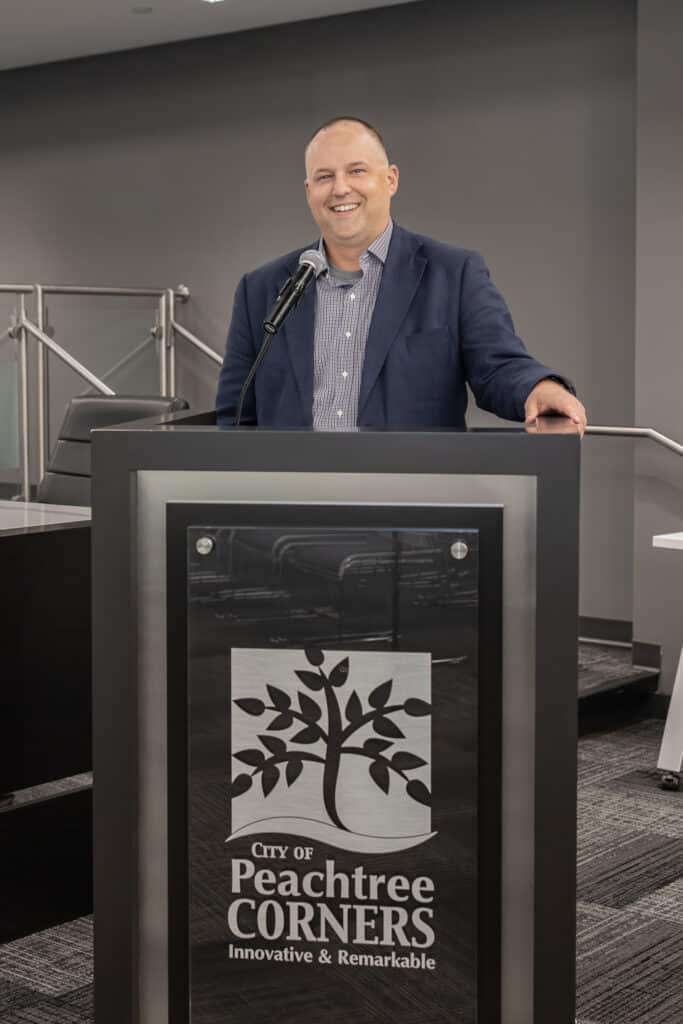
The events planning through the end of the year has already been moved from the community development director’s department. As a consultant, Wheeler will work with other contractors to manage the happenings at the Town Center. Director of Communications Louis Svehla has already moved into managing premier events, Johnson said adding that the city may use more consultants in the future under Svehla’s management.
“He has really shown his ability to manage special events very adeptly. He really showed me that skill set when we had last year’s Criterium bike race,” said Johnson. “I decided to take advantage of some opportunities, including our partnership with Audi, which we were going to announce to the whole vulnerable road user thing.”
With only three months to prepare, Svehla pulled off the event without a hitch.
“He did an outstanding job and so he is capable of taking the management of our community events, our concerts and stuff,” said Johnson.
Johnson said the city is still utilizing consultants for some aspects of special events, but if consultant fees become more expensive than hiring someone full-time to assist Svehla, he’ll make that call.
“All those moves have happened, and I’ll sum it up by just saying that I’m just playing to the strengths of these people and utilizing a great team that I have, and it’s working out really well,” Johnson said.
Related
Read the Digital Edition
Subscribe
Keep Up With Peachtree Corners News
Join our mailing list to receive the latest news and updates from our team.
You have Successfully Subscribed!

What’s going on at Jones Bridge Park and the Challenges of Urban Development

Taste of Peachtree Corners: PCBA Showcases Local Restaurants

The Forum Gives Sneak Peek of New Eateries and Community Spaces

Southwest Gwinnett Mayors Share Visions for the Future

8 Events Happening In and Around Peachtree Corners This August

Peachtree Corners Shines Bright with Light Up the Corners Glow Race this August

Peachtree Corners Shines Bright with Light Up the Corners Glow Race this August

The Forum Gives Sneak Peek of New Eateries and Community Spaces

8 Events Happening In and Around Peachtree Corners This August

Southwest Gwinnett Mayors Share Visions for the Future

Taste of Peachtree Corners: PCBA Showcases Local Restaurants

What’s going on at Jones Bridge Park and the Challenges of Urban Development

Local Resident Opens AtWork Location in Peachtree Corners

CHRIS 180 Expands its Services into Gwinnett County [Podcast]

Light up the Corners [Video]

Capitalist Sage: Business Leadership in Your Community [Podcast]

Cliff Bramble: A Culinary Adventure through Italy

Top 10 Brunch Places in Gwinnett County

A Hunger for Hospitality

THE CORNERS EPISODE 3 – BLAXICAN PART 1

Top 10 Indoor Things To Do This Winter

The ED Hour: What it takes to Remove Barriers from Education
Peachtree Corners Life
Topics and Categories
Trending
-
Business1 week ago
Taste of Peachtree Corners: PCBA Showcases Local Restaurants
-
Business2 days ago
The Forum Gives Sneak Peek of New Eateries and Community Spaces
-
City Government4 days ago
Southwest Gwinnett Mayors Share Visions for the Future
-
Around Atlanta4 days ago
8 Events Happening In and Around Peachtree Corners This August






